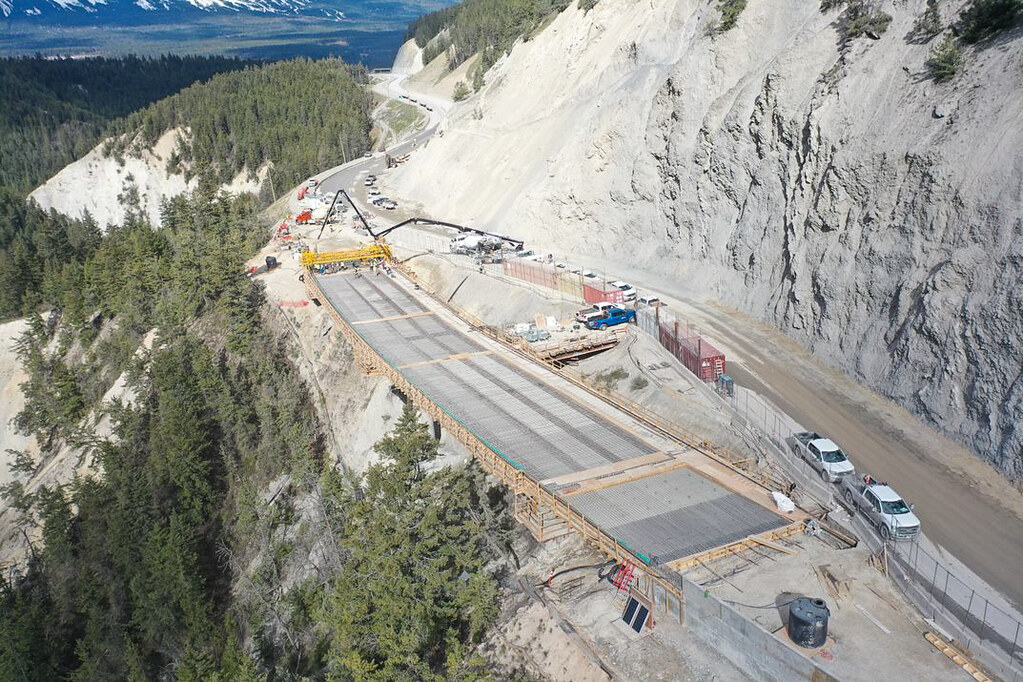Progress on the latest phase of the Kicking Horse Canyon upgrade is going very well, according to the B.C. government.

The usually busy stretch of the Trans-Canada Highway is already seeing new bridges, retaining walls and highway viaducts taking shape in what is the fourth and final phase of upgrades.

“It is remarkable to see the transformation of this highway as the finishing touches are put on key bridges and the first year of construction nears completion,” Dominic LeBlanc, federal minister of intergovernmental affairs, infrastructure and communities, said in a Wednesday morning press release.

Get daily National news
Progress to date includes the construction of Bighorn Bridge, the project’s longest bridge at 160 metres, where girders have recently been installed. The eastbound lanes of the Sheep Bridge are nearing completion, with the concrete bridge deck recently poured.
The project is slated for completion in winter 2023-24, with the next stretch of full highway closures expected in the fall.
“The engineering needed to upgrade Highway 1 through the Kicking Horse Canyon is absolutely extraordinary,” Rob Fleming, B.C.’s minister of transportation and infrastructure, said.
“The first year of construction has been challenging, but excellent progress has been made. When completed, these major improvements to this section of highway will make travel better and safer for all who use it.”
Once complete, about 25 kilometres of narrow, winding two-lane highway will be upgraded to four lanes, with a 100 km/h standard.
The work includes the construction of four new bridges and nine new viaducts.
The $601-million project cost is shared, with the government of Canada contributing up to $215 million and the B.C. government providing the remaining $386 million.








Comments
Want to discuss? Please read our Commenting Policy first.